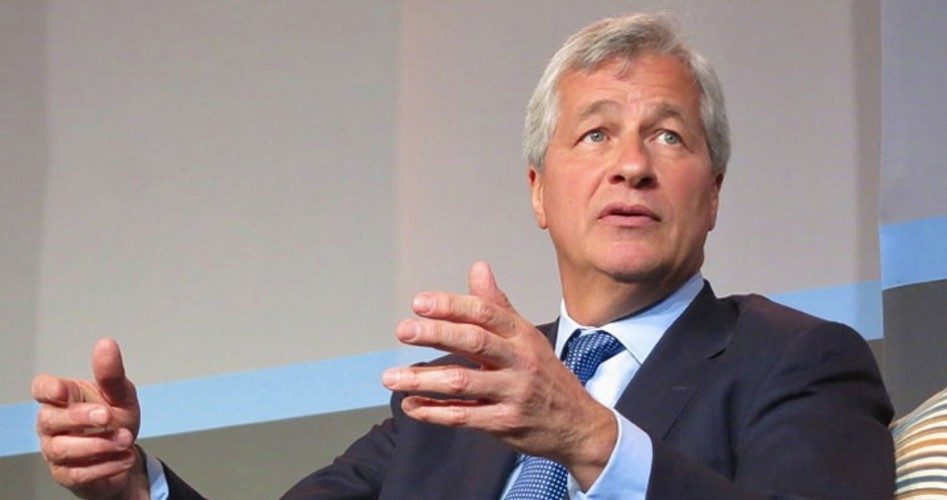
The announcement that a tentative agreement had been reached between the Department of Justice and JP Morgan (JPM) was surprising only in the size of the penalty the country’s largest bank (and second largest in the world) agreed to pay: $13 billion. It’s the largest penalty on record that any company has paid to settle claims made by the Justice Department.
But it’s far from being the first that JPM has paid. In a little over 10 years, the bank has paid out (not counting the present agreement which is still being negotiated) more than $5.2 billion in settling claims ranging from fraud involved in underwriting Enron and WorldCom bonds, and engaging in a “pay-to-play” scheme that brought Jefferson County, Alabama, to the brink of bankruptcy, to wrongly overcharging several thousand military families for their mortgages.
This present agreement is the result of numerous charges brought by several aggrieved parties, including the Federal Housing Finance Agency (that oversees mortgage giants Fannie Mae and Freddie Mac), the National Credit Union Administration, and the state of New York, among others.
During the run-up to the start of the Great Recession, the culture of corruption at JPM, Bear Stearns, and Washington Mutual (subsidiaries of JPM) was sufficiently strong that these institutions developed and then sold packages of “mortgage-backed securities” (MBS) containing mortgages of poor quality that were sold as AAA risks. In one singular example, the bank sold $87 billion worth of MBS that were worth only $64.5 billion, costing investors and ultimately U.S. taxpayers $22.5 billion. All told, taxpayers were forced to bail out Fannie Mae and Freddie Mac, the purchasers of these toxic investments, to the tune of $187 billion.
Considering JPM’s total assets of $2.5 trillion, annual revenues of $100 billion, and net earnings of $21 billion a year, the fine it has agreed to pay can be put into proper perspective: It’s “chump change,” as Michael Hiltzik put it, writing in the Los Angeles Times. The bank will be getting off easy if the Justice Department goes along with the deal. JPM, aware that the day of reckoning was near, had set aside $28 billion of shareholders’ capital in reserve, just in case. Even though the bank is hoping to get off at half of those projected losses, the agreement offered comes with strings: Jamie Dimon, JP Morgan’s CEO (shown), not only wants the settlement to include all the other pending lawsuits (including the interest-rate manipulations known as Libor and the trading losses incurred by Bruno Iksil, better known in the trade as the “London Whale,” who cost the bank more than $6 billion when his excessively large trades went south), he wants all criminal investigations to go away as well.
The bank first offered $3 billion to settle and then increased it to $11 billion on the condition that it would resolve all civil suits and end all criminal investigations. When Attorney General Eric Holder turned that offer down, Dimon raised the ante to $13 billion. Under pressure from his board of directors, Dimon offered to pay the $13 billion penalty and assist with the criminal investigations as well. At present there are more than a dozen investigations into wrongdoing at JPM, and Dimon is hopeful these will all halt if the check from the bank is large enough. At last report, those criminal investigations appear to be a sticking point in completing the agreement.
The $13-billion settlement includes $9 billion in fines and $4 billion as restitution for “struggling homeowners,” according to the New York Times. Nothing was said about the “struggling taxpayers” or the “savaged investors” who believed JPM’s lies about the safety and security of the MBS they were offering for sale. One selling point that Dimon is pushing: If the bank actually admits to criminal charges it could damage its image and expose it to shareholder lawsuits. As the Times put it: “The government prefers to settle with big companies rather than indict them, fearing that criminal charges could unnerve the broader economy.”
It’s better to pay legal fees than to be an indicted criminal in a conspiracy. And paying them they are. JPM announced that part of the reason for the losses suffered in the last quarter (the bank usually turns a $5 billion profit every 90 days) is because of some $7 billion in legal fees, with more to come.
With shareholders footing the bill and little chance for restitution by JPM to the taxpayers, the people gaining from the bank’s continued manipulations are the lawyers and the bank’s top executives. As Hiltzik put it:
The people who pay [the $13 billion penalty] are not the executives who managed the bank to this pass, but the shareholders. Until responsible executives are held personally accountable — including Dimon — no financial penalty will have a deterrent effect.
In fact, Dimon’s arrogance extends so far as to include his demanding that subordinates in the bank withhold data from one of the bank’s regulators back in March while it was under investigation.
Not only should Dimon be fired, but he should also be charged with criminal conspiracy. If the charges stick and Dimon winds up behind bars, customers of the bank may reasonably be assured that he would no longer be able to run the bank as his private fiefdom. But this is hardly likely to happen, according to Hiltzik:
As for Dimon, his jobs at JPMorgan still look secure. That’s a reproach to the ethics of American business’ ruling class and to the integrity of a JP Morgan board that leaves him in place despite many billions in legal and regulatory penalties for his bank’s unethical behavior.
It’s sad when the quality of a top executive is most admired for is his ability to deflect personal blame and stick [his] shareholders with the bill.
A graduate of Cornell University and a former investment advisor, Bob is a regular contributor to The New American magazine and blogs frequently at www.LightFromTheRight.com, primarily on economics and politics. He can be reached at [email protected]



